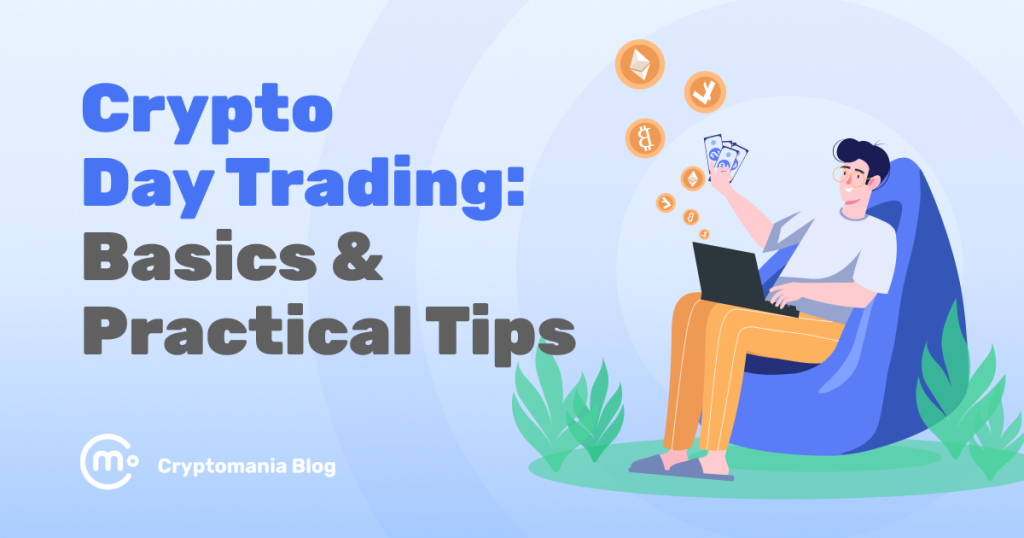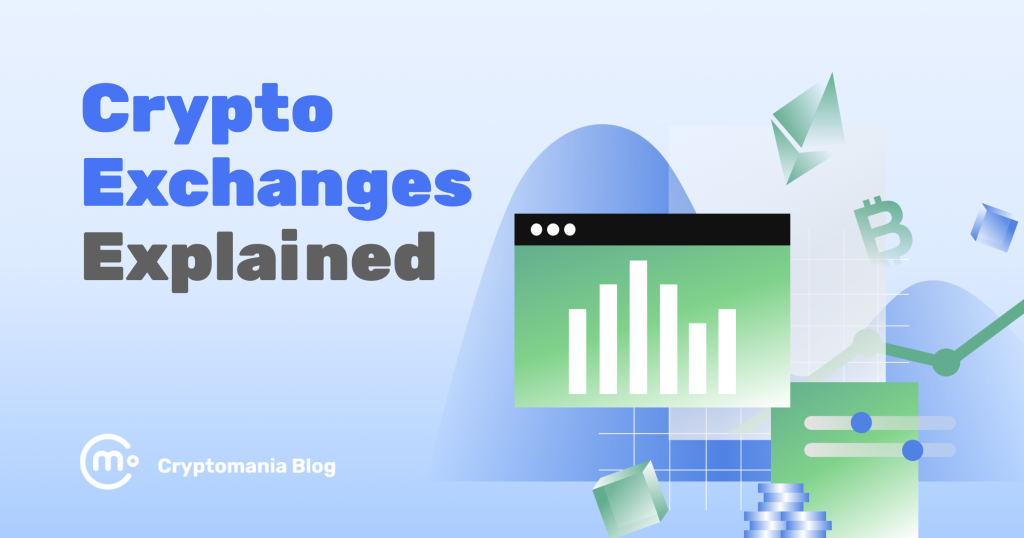
A crypto exchange is a starting point for all newbie crypto traders, but with so many options out there, it’s easy to feel lost in the sea of platforms and apps.
In this blog post, we’ll walk you through everything you need to know about crypto exchanges. From understanding the difference between centralized exchanges (CEX) and decentralized exchanges (DEX) to exploring the most popular platforms and their unique features — we’ve got you covered. Without further ado, let’s get started.
What is a crypto exchange?
To buy or sell cryptocurrencies, you can use a cryptocurrency exchange like Binance or Kraken. Basically, it’s a website or an app where you can swap digital coins for regular money.
You just deposit some cash into your account and then you’re good to go. Pick the coin you want, place an order, and voila! Your crypto will appear in your digital wallet.
If you want to sell it, just do the same thing in reverse.
Before crypto exchanges, getting bitcoin and other cryptocurrencies was a bit tricky — you had to mine them, chat with folks online, or even meet in person!
Nowadays, most traders start with an exchange. Of course, only after they learn all the ropes on a demo-trading account or a trading simulator like Cryptomania.
There are lots of exchanges out there, some for newbies and others for pros. Depending on the exchange, you can use regular money like U.S. dollars to get crypto, or even swap one cryptocurrency for another.
There are two main types of crypto exchanges: centralized and decentralized. Let’s talk a bit more about them.
CEX & DEX: what are they and what’s the difference?
Picture this: you want to trade or buy some cryptocurrencies like Bitcoin or Ethereum. Where do you go? Well, you can choose between two types of places, kind of like deciding between a regular bank and your secret treasure chest.
Centralized Exchanges (CEX): the crypto banks
Think of centralized exchanges like the banks of the crypto world. They’re places like Coinbase, Binance, or Kraken. When you use a centralized exchange, it’s a bit like opening an account at a bank.
Here are the main features of an average CEX:
- Your private vault. These exchanges have their own big vaults (servers) where they hold your cryptocurrencies for you. You trust them to keep your digital coins safe.
- Easy to use. Centralized exchanges are usually simple to use. They’re like online stores where you can buy, sell, and trade different cryptocurrencies.
- Crypto matchmakers. Centralized exchanges play a middleman role. They bring people together to buy and sell crypto stuff. This way, you don’t need to know each other, and your privacy stays top-notch. They make sure all transactions run smoothly.
- Professional safe-keepers. But that’s not all. CEXs are also like trustworthy guardians: just like you trust your bank to look after your money, you’re trusting these exchanges to keep your crypto safe. It’s like having a secure box for your precious belongings.
Decentralized Exchanges (DEX): the treasure chest you control
Now, let’s talk about decentralized exchanges, your secret treasure chests of crypto. Uniswap and PancakeSwap are good examples.
Here’s what distinguishes DEX from CEX:
- You’re in charge. When you use a DEX, you’re like a pirate with your treasure chest. No one else has control over your crypto. You don’t need to tell them who you are.
- Keep it secret, keep it safe. There’s no need to share your personal info. You don’t have to trust a big company with your coins. It’s all about privacy.
- A bit tricky. DEXs might be a bit more complicated, like a puzzle to unlock your treasure. But once you get the hang of it, it’s pretty empowering.
So, which is better? Well, it depends on what you want. If you like the idea of your crypto being watched over by a trusted “bank,” go for a centralized exchange. But if you’re all about being your crypto captain, sail toward a decentralized exchange. Each has its perks and quirks, and it’s up to you to decide which one fits your style.
How do CEXs work?
Think of crypto exchanges as online marketplaces where you can buy and sell cryptocurrencies. It’s kind of like going to a regular stock exchange, but instead of trading stocks, you’re trading digital currencies like Bitcoin or Ethereum.
Here’s how it works: You sign up for an account on a crypto exchange platform, just like you would for any other website. Once you’re signed up, you can deposit your regular money, like dollars or euros, into your exchange account. Then, you can use that money to buy cryptocurrencies.
When you want to buy a cryptocurrency, you place an order on the exchange. Basically, you say how much of the cryptocurrency you want to buy and at what price you’re willing to buy it for. If someone else on the exchange is willing to sell their cryptocurrency at that price, the trade goes through, and you now own that cryptocurrency.
Similarly, if you want to sell your cryptocurrency, you can place a sell order on the exchange. The process is the same: you place an order, someone agrees to buy your crypto, the trade goes through, and you get your regular money back.
Crypto exchanges act as the middlemen connecting buyers and sellers, and making it easy for them to trade coins with each other.
Choosing a crypto exchange: 7 things to keep in mind
Choosing the right exchange is like picking the right tool for the job. Remember, it’s not just about going with the first exchange you see on Google or the one that’s getting all the buzz on Reddit. Take your time to make an informed choice.
Always keep in mind: Do Your Own Research (DYOR). Your financial journey is unique, and the right exchange will make it smoother.
Here’s a little guide to help you along the way.
- Check reputation and security. First things first, research the exchange’s reputation. Look for user reviews and feedback online. Make sure the platform has strong security measures to protect your assets.
- Customer support matters. Good customer support is essential. We can’t stress that enough. You might have questions or run into issues, and it’s comforting to know there’s help available when you need it.
- Fiat currency trading. If you plan to use regular money (like dollars or euros), make sure the exchange supports these fiat currencies. Not all exchanges do.
- Variety of cryptocurrencies. Think about which cryptocurrencies you want to buy or trade. Different exchanges offer different ones, so check if they have what you’re interested in.
- User-friendly platform. A user-friendly trading platform can make your life a lot easier. It’s no fun getting lost or confused on a website.
- Mind geographical restrictions. Some exchanges have restrictions on users from certain countries. Confirm that your country is accepted on the platform.
- Fees. Exchanges often charge fees. These can be trading fees, withdrawal fees, or deposit fees. Know what you’ll be paying and how it compares to other exchanges.
- Special offers. Sometimes exchanges have loyalty programs or discounts. These can be a nice bonus, so look into those as well.
Remember, it’s about finding the exchange that suits your needs and feels safe and easy to use. It might take a little time to compare, but it’s worth it to find the right one for you. Choose wisely!
5 popular crypto exchanges and apps
Navigating the world of cryptocurrency exchanges can be a bit overwhelming, especially for beginners. With so many platforms and apps out there, it’s tough to know which one is right for you.
Here are five of the most popular crypto exchanges, each with its own unique features to help you find the right fit for your needs.
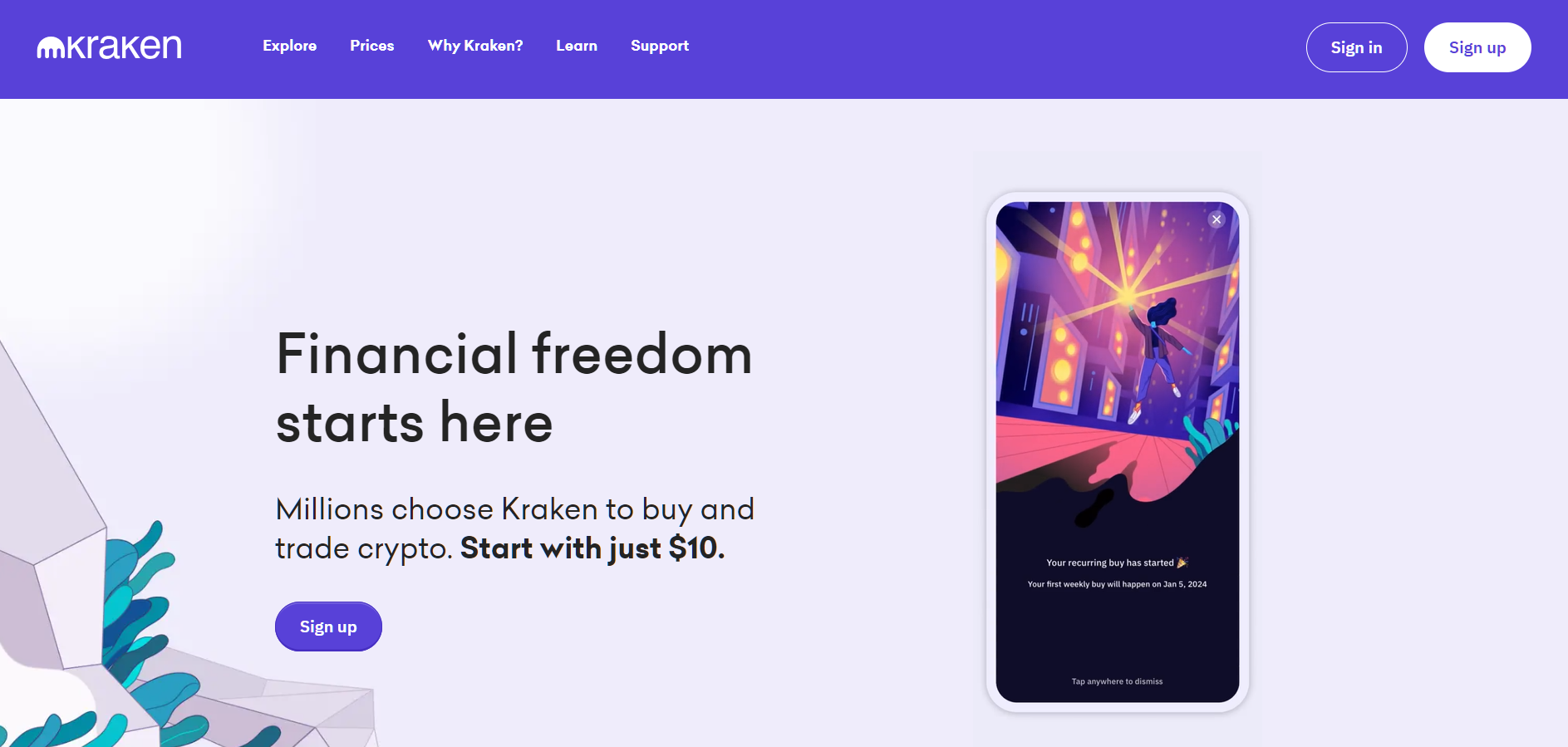
Kraken is known for its low fees, making it a favorite among experienced traders. It offers a wide range of cryptocurrencies to trade and has advanced trading features for those who know their way around the market.
For a detailed look at Kraken’s features and fees, check out this comprehensive review. It covers everything you need to know about the Kraken crypto exchange.
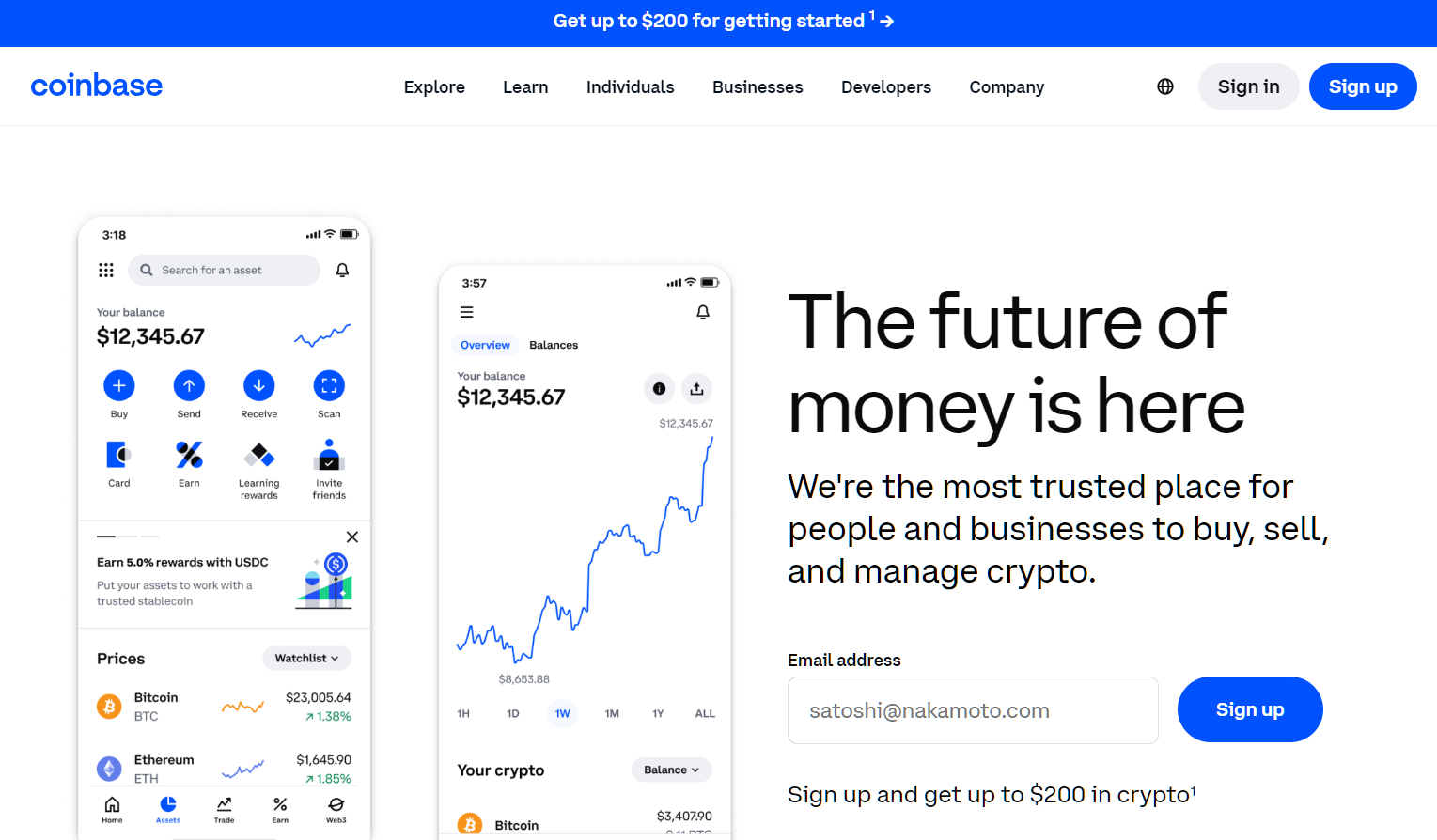
If you’re new to cryptocurrency, Coinbase is a great place to start. Its user-friendly interface and straightforward buying process make it perfect for beginners. Plus, it offers a secure wallet to store your digital assets.
For a more detailed Coinbase review, click here.

For those who are always on the go, Crypto.com’s mobile app is a game-changer. It’s easy to use and offers a variety of features, including buying, selling, and even earning interest on your crypto holdings.
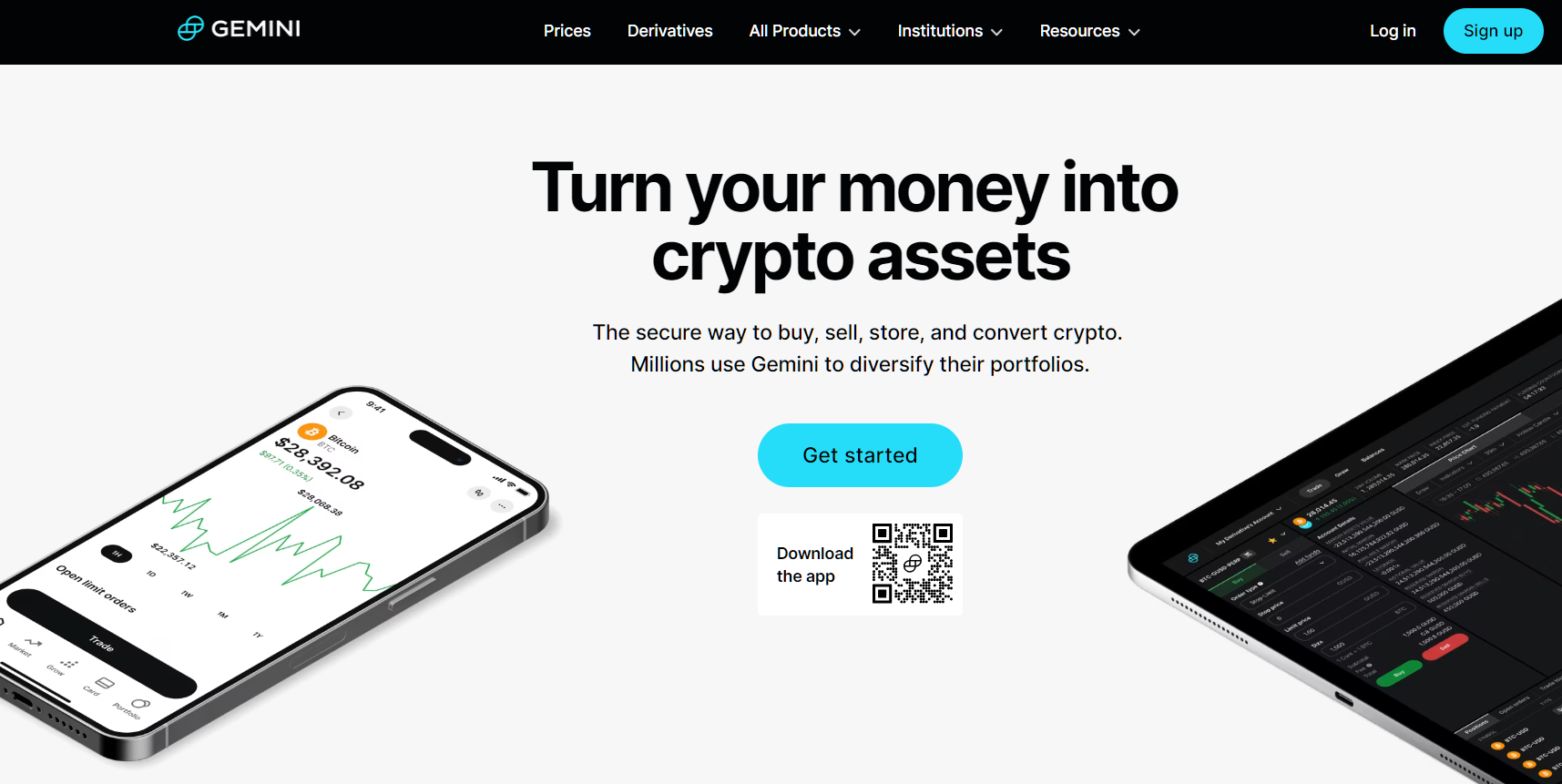
Security is a top priority for Gemini, making it a trusted choice for many investors. It offers robust security measures, such as cold storage for assets and insurance coverage, to keep your funds safe.

If you’re interested in exploring altcoins, BitMart is the place to be. It offers a wide selection of altcoins for trading, catering to those looking to diversify their portfolio beyond the well-known cryptocurrencies like Bitcoin and Ethereum.
How to start trading crypto on an exchange
While there are many different crypto exchanges out there, the good news is that the steps for creating an account and getting started are pretty much the same across the board.
Let’s walk through the steps together:
- Sign up. Start by creating your account, like signing up for any other service. You’ll need to provide your email, username, password, and country of residence.
- Verification. To ensure security, most exchanges ask for some personal information and documents during the KYC (Know Your Customer) process. Don’t worry — it’s a standard practice.
- Deposit funds. Now comes the exciting part! You can fund your account using various methods like wire transfers, ACH payments, or credit/debit cards. Remember, start small until you get comfortable!
- Trading. Ready to make your first crypto moves? Choose a trading pair (like BTC/USD) and decide whether you want to buy or sell. You’ll have to fill out a simple order form.
- Order execution. After you submit your order, the exchange matches it with someone else looking to buy or sell at the same price. When this happens, your trade executes, and you’re officially a crypto trader!
- Withdraw funds. Finally, if you ever decide to cash out or move your crypto, you can withdraw to your bank account for fiat currency or your wallet address for cryptocurrencies. Always double-check your withdrawal details!
Wrapping up
Alright, we’ve covered a lot of ground in this post about crypto exchanges, from understanding the different types of exchanges to getting started with trading.
Now that you have a better grasp of how crypto exchanges work, remember to always do your research before investing and never invest more than you can afford to lose.
One helpful tip for trading on crypto exchanges is to start small and gradually increase your investments as you gain more experience and confidence. With the right knowledge and a cautious approach, you’ll be well on your way to navigating the world of cryptocurrency trading.




